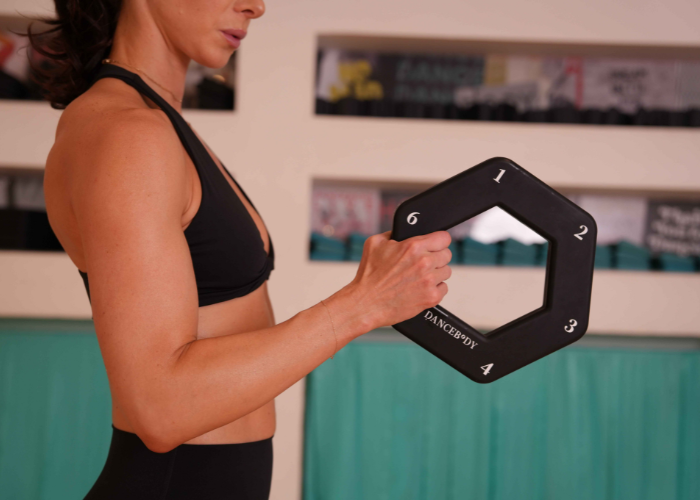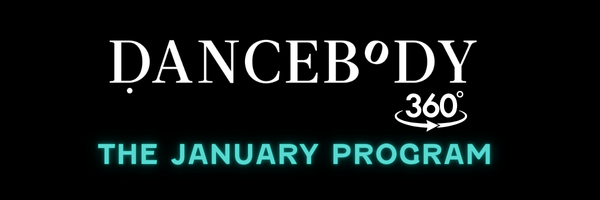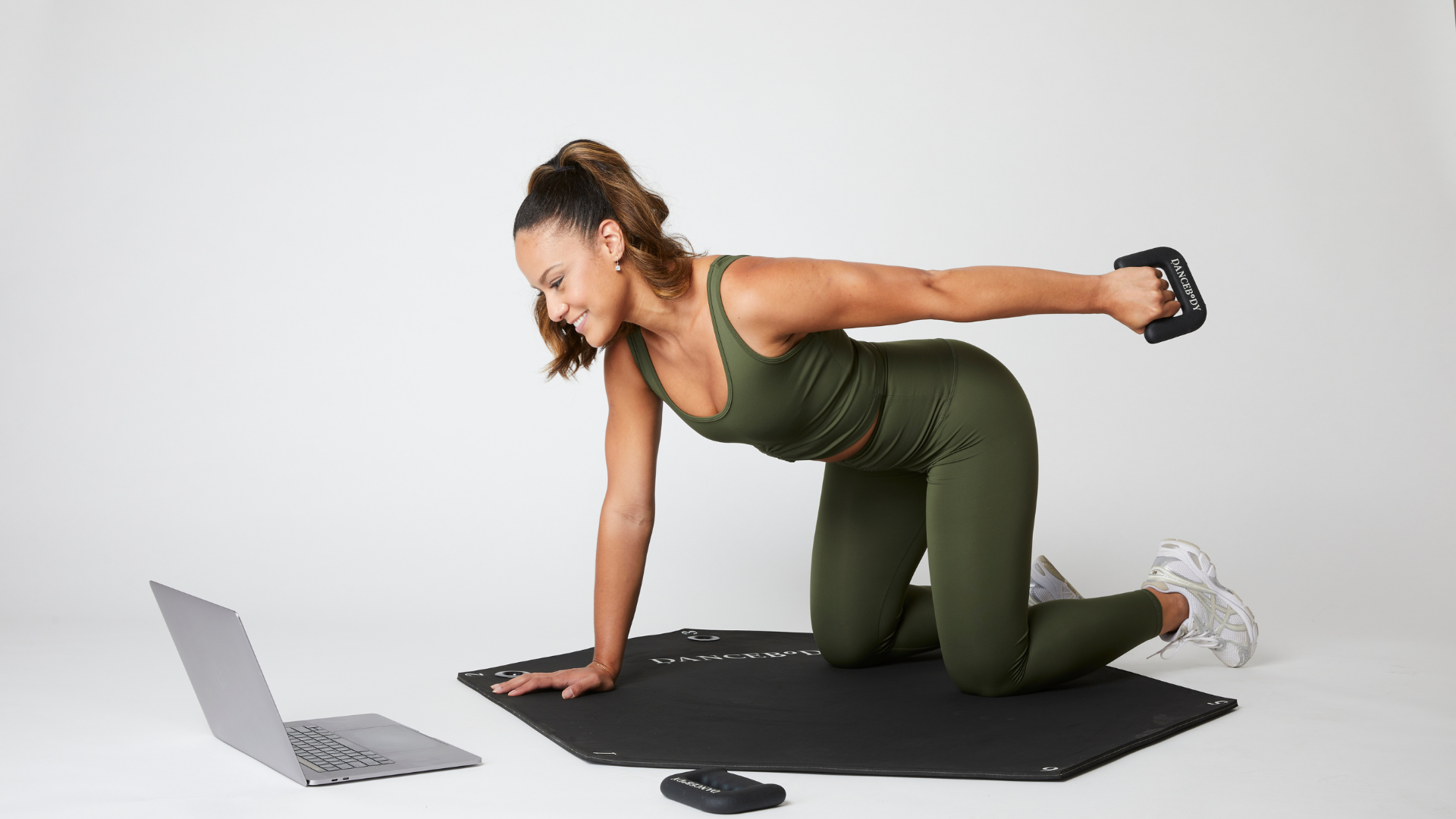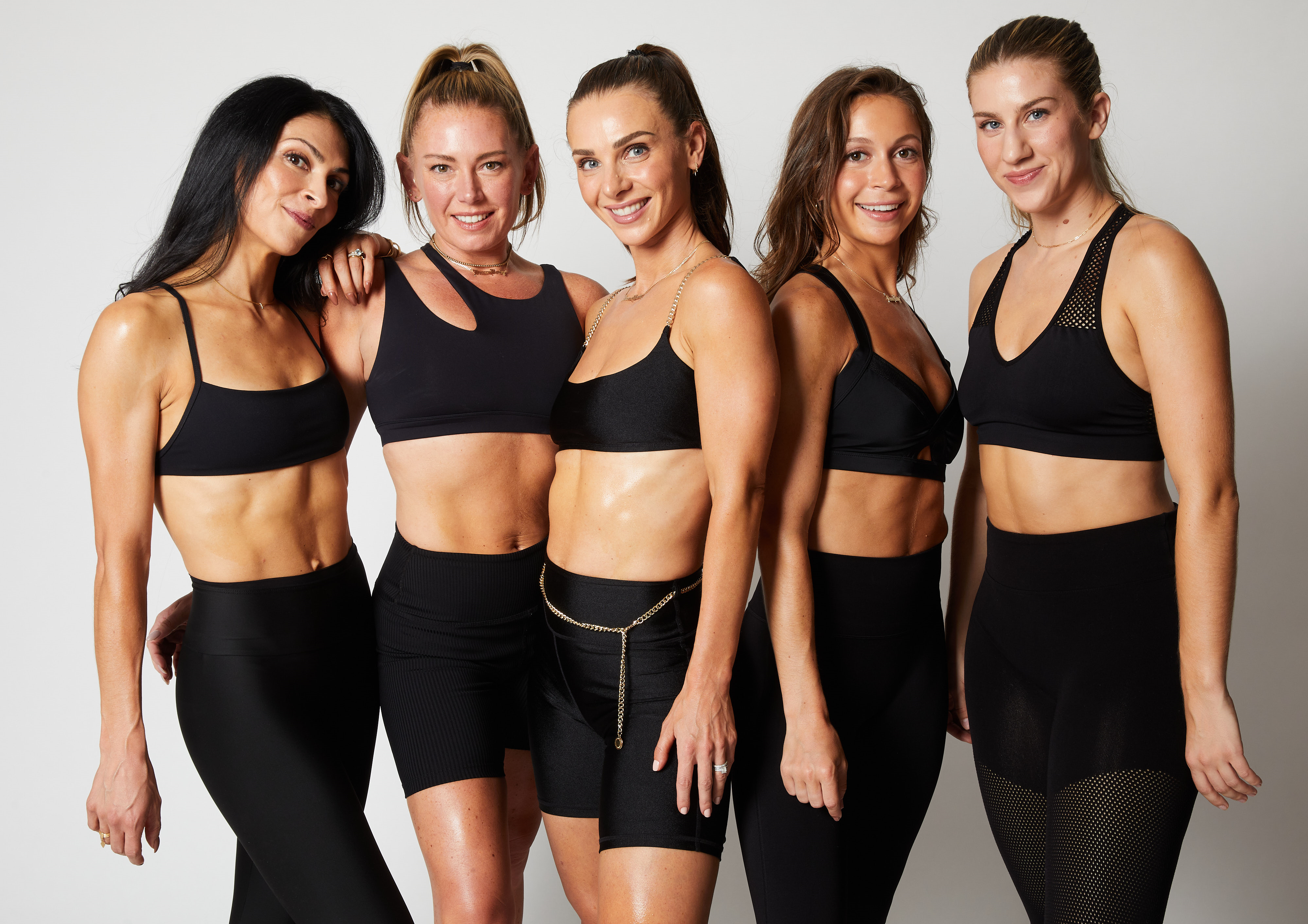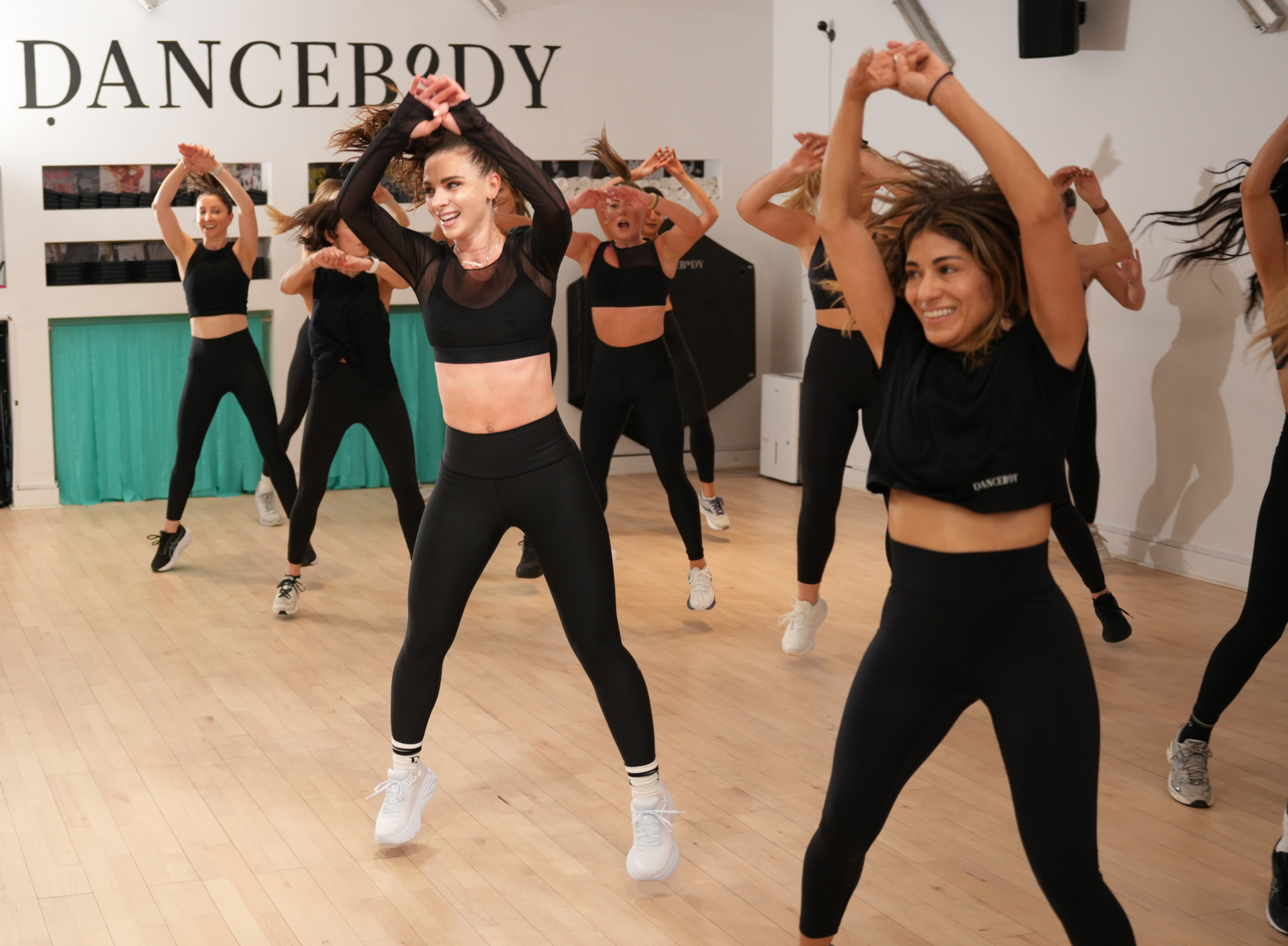Through the flurry of pink waves, we're reminded that October is dedicated to Breast Cancer Awareness, a month-long period that recognizes the 1 in 8 women who will develop invasive breast cancer at some point in their lifetime. But that “awareness” becomes personal when it happens to you, or someone you know and love. With the majority of DanceBody clients being female, so many of us have in some way experienced the effects of breast cancer, like my good friend Rebecca.
I met Rebecca in 2019 as a lively regular at our Williamsburg Studio. When she told me she was diagnosed with Breast Cancer, in January of 2020, at age 38, my heart sank. Yet, I was stunned by her positivity and forthrightness about confronting it head on. Throughout the COVID shutdown, and the months that have unfolded since, Rebecca shared her story through social media.. Her total transparency about living with breast cancer is nothing short of inspirational. Her story has moved me, and I know it will move you too.
Katia: We’re gearing up for the second METAVivor Charity Class on October 28th. I can’t believe it’s already been one year since the first fundraiser together. What’s changed in your life since then?
Rebecca: This time last year [October 2020] we were doing our class and I was feeling really, really strong. Even though I had gone through chemo, radiation and had the double mastectomy, I had the same mentality as I had pre cancer, trying to make sure I stayed as physically active as possible and was dedicated to my routine. Shortly after that [charity] class, I started to develop a delayed reaction to the radiation therapy. I started to have severe limitations in my range of motion with my right arm. And that was the first domino to fall to kind of derail some of the plans that I had had as far as reconstruction went. I ended up having a pretty serious surgery in March of 2021 and my range of motion got really bad.
Katia: It’s amazing to have come so far, only to experience that kind of setback. But you still managed to Keep Moving. What did you tap into to stay positive?
Rebecca: I actually took a moment where I acknowledged that this is really hard, I'm going through a lot, and I don't feel like I can just get up and keep doing this anymore. I needed to let my body rest and heal. That’s when I leaned into being a patient for a few months. In July, when DanceBody had its pop up in the Hamptons, I knew I needed to get back into this. It was both physically and mentally important to me...and I started to feel like myself again.
Katia: I love that you felt like yourself after coming to class. Walk me through what the process was like keeping your workouts going through it all, and how DanceBody helped.
Rebecca: I was in the best shape of my life when I was diagnosed because of being at DanceBody. I am a firm believer that you need to prioritize your health. Not because healthy people don't get sick, but because when you do get blindsided with any kind of medical issue, you are in a far better position to fight like hell if you're already strong and have good health habits. If you're in good shape you don't have to totally rejigger your whole life and approach things like food and exercise and movement and all of that. Movement is critical, it’s medicine - and it was a part of my treatment protocol.
I had to take serious breaks for like six to eight weeks after each surgery. But for the most part, I really did keep it up almost every day for a long time. And it kept me sane. Even though I have taken a pretty big hit (comparing myself to today versus pre-diagnosis) this is as good of physical shape as I could hope to be in now, and it’s because of DanceBody.
Katia: I remember. I saw the tags on Instagram, I knew you were still working out and that made me SO happy. Did it help with your restricted range of motion?
Rebecca: I started doing PT to help with the range of motion in my right arm, plus the resistance band work from DanceBody Sculpt classes really helped with lengthening and stretching through the muscles. It totally helped to loosen up some of that tissue that has become stagnant from radiation. Also, in the Signature class, I had to really focus my mind on the movements, so it helped to keep me sharp. It's literally blood for your brain.
Katia: I still can’t believe this all happened to you at the age of 38. The average age to be diagnosed with breast cancer is 63. So, do you feel separated from other women your age?
Rebecca: Because I was experiencing the majority of this during COVID, I felt like it was a weird time for all of us. So in many ways, I felt like the world was going through a suppressed time, and I was too! I didn't have any FOMO because no one was doing anything. We were all going through all of this craziness. Maybe because we were all going through another trauma together, I actually felt connected. Otherwise, it probably would have been pretty isolating.
Katia: Is there ever an “after” to being diagnosed?
Rebecca: That’s the question, right? People talk about “survivorship” and what does that mean. I think there's an after mentally and an after physically. Physically I'm still kind of recouping but I do feel like mentally there's been a big shift. Breast cancer is starting to feel kind of comfortably behind me.
Katia: That’s important, to separate the physical from mental at times.
Rebecca: I’m in competition with myself and I just want to get back to where I was.
Katia: The body does have ultimate wisdom, even when you feel like it's at war with yourself. I think what you're doing is really admirable because you're tuning into your body and listening to not only what your body thinks but how you're able to live your life because no one can live their life in a bubble.
Rebecca: That’s the other thing I always say about DanceBody. It was the first exercise that got me to a place where I felt I could move more and focus less on every detail of what I was eating, within reason obviously, and I'm reminding myself of that as I forge ahead in survivorship. There's a lot of food fear-mongering in Cancerland, and most of it is not based in science at all. Like any other eating issue, it's about control -- a way to regain control after this crazy scary thing happened inexplicably. It's easy to get sucked into all that but I just want to keep it all very intuitive - to listen to my body - because I feel like it took me a long time to get to a good place with my diet and workout routine, I don't want cancer (or the fears that can result from having had cancer) to derail me.
Katia: Since you’ve been on this journey, is there a piece of advice you can give to others who aren’t sure how to approach friends and family dealing with breast cancer?
Rebecca: My advice is, just show up and don’t worry about saying the wrong thing to the point where you don't say anything at all. it’s important to know that people might not say everything completely correctly but ultimately they’re trying to connect. Nine times out of 10 I think those with cancer do want to hear from you. It'll just make them happy. It’ll make them feel loved.

We Are Stronger Together
Rebecca’s breast cancer organization of choice is METAvivor, a non-profit dedicated to the fight of women and men living with stage 4 metastatic breast cancer.

